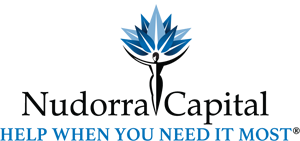Karen Joudrey is a tutor in Occupational Therapy at Dalhousie University in Halifax. She’s an expert in motor vehicle accidents (“MVA”), including whiplash and complex injuries. We asked Karen about common MVA injuries and different types of therapy.
The “Big 3” MVA injuries involve the brain, spine and shoulder. If you look online, you’ll often see symptoms such as headaches, low back pain, numbness or tingling listed as “injuries” when in fact they’re symptoms. Some people report success with alternative treatments (such as acupuncture, chiropractic, traditional Chinese medicine, homeopathy) to address symptoms. Injury diagnosis, however, involves physicians.
Karen sees MVA injuries in different categories. “Non-catastrophic” injuries will heal, such as whiplash, sprains, fractures, or acute stress. With “Catastrophic” injuries a person is left with permanent impairment, including spinal cord injury or post-traumatic stress disorder (PTSD).
You might think that PTSD is something that soldiers suffer after being in battle. But any accident is a trauma, and the changes in your life can result in loss (of many kinds) and grieving. Karen says, “Your world changes: you’re dealing with lawyers, and have a lot of appointments. Your social life changes: what you do, and who you spend time with, can change. This has a snowball effect on how you feel.” Motor vehicle accident victims often need counselling for PTSD.
Karen explains that therapists and rehabilitation professionals use Remediation techniques (when the injury is improving, like strengthening and stretching) or Compensation techniques (when there is a permanent impairment that has reached maximum medical recovery, such as wheelchairs, vehicle modifications, or changing the way a task is performed).
Therapists talk about “Hurt vs. Harm” – sometimes therapy causes discomfort, but it’s really helping you. For example, with a lower back injury, resting and lying down might feel good but it’s not actually good for you. Getting up and walking for 3 minutes might cause soreness, but that’s good exercise, not harmful. Some well-meaning family members might make you lie down all day and wait on you hand and foot, but that’s not really helpful, since it’s doing more harm than good.
Most people have heard of Physiotherapy, but not Occupational therapy. “Occupation” includes work, but is more than that. “Occupation” includes your everyday life, as a parent, provider, homemaker, family chauffeur, and all the roles you play. You might need to change the way you perform everyday tasks like grocery shopping, driving, and so on. An occupational therapist assesses your home life and your job.
About Nudorra Capital:
Nudorra Capital is a litigation and pre-settlement loan company. During litigation, clients may find themselves facing financial difficulties. At Nudorra Capital, we recognize the sensitivity of the situation and provide loans professionally, timely (usually within a 24 to 48 hour period) and at the most competitive rates in the industry.
Our loans do not require interim payments and are only paid back when the case is settled.
We believe as a company, that your client’s priorities should go towards healing themselves first, not worrying about whom to pay. To find out more about how we can help, please call us at (416) 342-9590 or email our President Jeffrey Gottheil at jgottheil@nudorra.com
